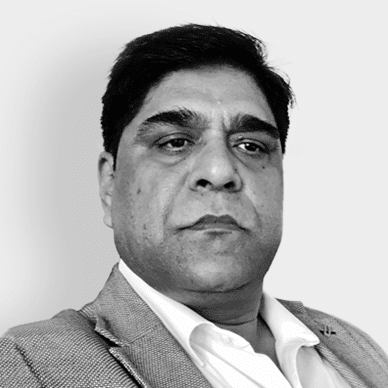There was a time when smooth check-in/check-out facilities, good in-room services, and a well-spread buffet was enough to create satisfying guest experiences. Today’s travellers, however, expect much more from hospitality organisations. For them, a “meaningful” experience is not merely a seamless hotel experience or an excellent dining experience. It is an experience that connects them with people and places, an experience that respects their principles, and an experience that brings value for money. This inevitably means that hoteliers need to rethink their technology stack and adopt solutions that facilitate these meaningful experiences.
Connecting with people and places
Following the continued lockdowns and movement restrictions, people have, now more than ever, realised the importance of connecting with people and nature. This is why following the pandemic, travellers are making plans to reconnect with their families and close friends. Some people will prefer to travel closer to home and enjoy a relaxing time with their loved ones, while the high-mileage travellers will opt for road trips as opposed to heavily regulated air travel. National Geographic found that these long-distance travellers plan to focus on diving into meaningful experiences in out-of-the-way areas.
How can technology help?
The process of creating meaningful guest experiences begins even before the guest steps in through the hotel doors. Hoteliers can use robust guest profiling systems available through FX Front Desk and FX Front Office Management in order to set up the perfect experience unique to each guest. This will enable the staff to identify the guests’ travel objective, be it spending time with their family or exploring nature. After all, recommending the hotel’s ongoing group spa offers would hardly be useful for a guest who is planning to go on a hiking tour.
Principles of sustainability
Another defining feature of meaningful experiences in 2022 is sustainability. Travellers are now actively choosing brands that uphold sustainability principles, with 58% of consumers stating that they are more concerned about the environment after the pandemic. Given that millennials and Gen Zs care deeply about their impact on the environment, it is hardly surprising that 4 out of 5 people state that they are more likely to choose a brand that advocates sustainability. Moreover, a Skift research found that 53% of travellers are even willing to pay more for environmentally friendly products.
How can technology help?
Technology is a double-edged sword capable of both doing and undoing damage to environmental quality. The trick is to use smart solutions designed especially for the impact-conscious generations. Simple solutions such as motion-activated switches, dimmers, and light timers create significant cumulative energy savings. Also, installing solar panels, which might have a high initial cost, will, in the long run, allow small hotels to zero out their electricity bills. Additionally, managing food waste through proper tracking and inventory management is another method of attracting eco-friendly customers. Make sure to post these measures on the hotel website and on social media to communicate to the customers of the organisation’s commitment to staying sustainable and green.
Quality over quantity
For today’s travellers, it is not about how many tick marks there are in their travel destination checklists. It is about the experiences they had and the stories that they can share about their travels. Research by National Geographic that asked industry experts about the defining characteristics of post-pandemic travel noted the quality of experiences preceding over the quantities. They noted that COVID-19 had made people rethink why they travel, encouraging people to explore passion-fuelled travel. This means that while travellers may visit some of the landmarks at a particular destination, they will also make time to enjoy a cup of coffee in the evening light or have a hearty conversation with a local.
Enabling the staff to have conversations with guests can build a better bond between the hotel and guests. More importantly, they can effortlessly add value and authenticity to the guest experience. Since the staff will most likely be locals, they will be able to direct the customers to the cute little shop by the corner that has the best local items or to that perfect spot at the beach for a quiet picnic.
How can technology help?
Once again, simple solutions can go a long way in creating meaningful experiences since automating repetitive tasks leaves the staff free to engage with the guests. F&B solutions like FX Dine that sends the order ticket directly to the kitchen leaves the stewards free to focus on their more nuanced requirements. Also, automating housekeeping task scheduling and assigning through cloud solutions like FX Housekeeping ensures maximum efficiency during these tasks leaving the staff free to tend to more personalised requests. In addition to that, integrating a robust CRM system will enable hoteliers to understand their guests’ preferences and ‘passions’, creating tailored upselling and cross-selling opportunities. Hospitality organisations that support and encourage passion-driven travel will undoubtedly become the favourites of travellers in 2022.
Today’s travellers seek much more than the traditional hotel-stay formalities during their vacations. They want to experience cultures and cuisines, learn about lifestyles, and connect with communities and nature. While utilising technology to facilitate such experiences may sound counterintuitive at first glance, it can, in fact, enable and empower the staff to provide a more meaningful experience unique to each traveller.

Author
Rajesh P Yadav
Chief Revenue Officer
Rajesh lovingly known as “RPY” at IDS is the Chief Revenue Officer who oversees all aspects of revenue generation, such as sales, marketing, customer acquisition, project delivery, customer success and partnerships.
Rajesh drives revenue growth strategies that align with the company's business goals and objectives in coordination with the revenue generation teams that he manages and mentors. He also identifies new potential markets and growth opportunities, and designs data-driven approaches to maximize revenue across all customer touchpoints.
